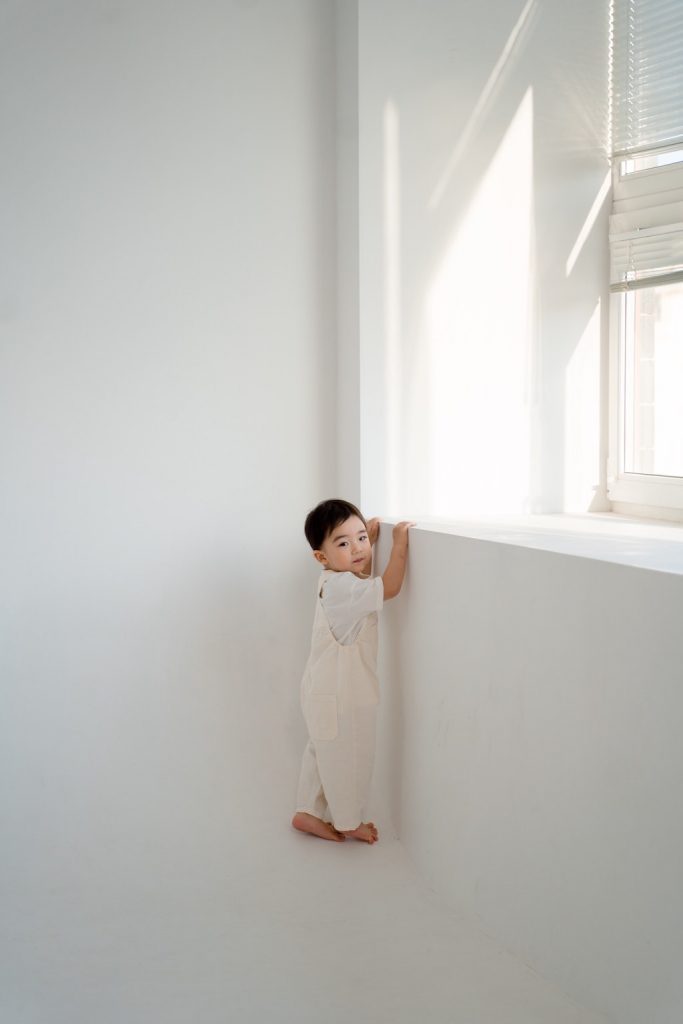SingaporeMotherhood | Parenting
June 2023
10 Effective Ways to Help your Child Cope with Stress

Stress is a normal experience in daily life, and a certain amount of stress can be helpful in getting things done or improving motivation. However, there are times when the level of stress goes beyond one’s personal threshold, and stress begins to have a negative impact on the individual’s ability to function in day-to-day life.
Exams, peer pressure, fear of failure, and not meeting expectations – it’s an open secret that children in Singapore face multiple stressors at school, at home and in society. The question is: do they have the skills to cope with stress? How can we nurture resilience in our children so that they are better able to handle stress?
You may ask, “Do children even feel stress?” Yes, they do. Stress is a normal reaction to challenges in life and it varies across age groups. Even toddlers and young children feel stress, and they experience it very differently from teenagers.
Common Stressors for Kids in Singapore
Many things that can cause a child to feel stress. Some of the more common stressors that children may face are listed below. Do note that these are not mutually exclusive. A child may be going through multiple challenges at the same time.
At School
- Schoolwork, exams, and grades: School takes up a major part of a child’s life. In a country that values hard work and merits, like Singapore, there is a strong emphasis on academic achievement from a young age.
- Overwhelming schedule and fear of failure: Apart from school, there are tuition sessions, enrichment classes, sports, school clubs, volunteer activities, and others. Our kids are busy. The need to meet expectations of themselves, their parents, and others also contribute to the immense pressure kids are facing.
- Challenging peer relationships
- Lack of motivation towards school curriculum
- Poor time and organisation skills
- Difficulties coping with the school curriculum
At Home
- Conflicts between parents: Children observe and absorb what they see in adults. If parents are going through a separation or struggling with financial issues, children know, and are affected too.
- Not having enough privacy: When parents are too controlling, the kids may feel they don’t have the independence to be themselves.
(See also: This made-in-Singapore book is helping Children of Divorce, one page at a time)
With Themselves

- Negative self-image: Similar to adults, kids struggle with self-image, feeling that they are not good enough if they don’t achieve certain results by a specific deadline.
- Puberty: At this phase, children are going through many changes. The surge of hormones can result in mood swings, irritability and emotional vulnerability. Furthermore, physical changes like growth spurts, acne, and body shape may make kids feel self-conscious.
In Relationships
- Conflicts with others: A rough patch with a sibling, a friend, or even parents and teachers is a common source of stress for kids.
- Peer pressure: As children seek acceptance and belonging, they may feel the need to look a certain way, speak in a certain manner or engage in certain activities. They fear being judged and ostracised by others.
Signs of Stress that Parents can look out for
Physical
- Changes in eating habits and decreased appetite
- Physical symptoms like stomach ache and headache with no physical illness
- Frequent nightmares and sleep disturbances
(See also: What to to When your Child has a Headache)
Emotional
- Anxiety, worry
- Feeling on edge
- Fear
- Anger
- Not able to control emotions
Behavioural
Toddlers and younger children: signs of regression to an earlier phase like bed-wetting, fear of separation, temper tantrums, stubborn behaviour or aggression, etc.
Older children and teenagers: negative self-talk, avoidance, not wanting to participate in family or school activities, changes in school performances and increased defiance.
(See also: Does your Child Need Anger Management?)
How You can help your Child with Stress
Before helping your child to cope with their stress, it is important for you to manage your own stress. If you model healthy ways of dealing with stress, your child is more likely to do the same.
Parents should remember to:
- Take care of themselves and other relationships.
- Take time out to relax.
- Find support from other family members or friends if they feel overwhelmed.
- Pursue their own interest that does not need to involve their children.
(See also: Parental Stress, Anxiety, and Burnout: are they happening to you?)
10 Ways to Help Your Child Cope with Stress

Not all stress can be eliminated. However, you can help your child to learn how to cope with stress. Here are some tips that can help:
1. Teach them about stress and emotions
The surge in emotions and the fight or flight state may leave your kids confused about themselves. They don’t know what’s going on and why they are feeling that way. Have open, honest conversations with them. Let them know that feeling stressed is normal, and that they are not alone in feeling that way. Slowly guide them through their emotions.
2. Set clear boundaries and expectations
Being understanding and empathetic doesn’t mean that you have to let go of boundaries. You can let the child know that while he or she is overwhelmed, standards of manner and respect still need to be followed.
3. Create a safe space to talk and be listened to
Children often find it hard to talk about difficult emotions. They may not know how to start and how to go about it. You can find time to do something together like a family dinner, cooking or baking. Children tend to share more when they don’t have to look straight at you.
4. Have a family routine
In times of uncertainty, children need something stable to rely on, a constant. That’s why having a routine is great. Having a movie night or Sunday outing is helpful to relax and help prevent stress.
5. Learn to listen
It’s easy for adults to give the child solutions to their problems. However, that may not be what they need. Instead, learn to listen to their feelings. Help them understand their emotions and work out the solutions. As open-ended questions and encourage the child to share more.

6. Recognise your child’s feelings
It’s important to acknowledge the child’s emotions. Saying things like “you are young, what do you know?” is not helpful.
7. Build your child’s sense of confidence and self-worth
Celebrate their efforts and small achievements. Shower them with love and affection. Use rewards to encourage positive behaviours and calmly guide them when they display negative ones. Engage them in activities which they are likely to do well and enjoy.
8. Ensure they have good sleeping habits
This means putting phones and electronics away from the bed, dimming the lights and making sure they get enough sleep every day. Avoid staying up late during the week. Sleep in during weekends does not make up for the loss of sleep during weekdays.
9. Be their role model
Children emulate behaviours they see in the adults around them. If you want your children to have a good coping mechanism with stress, you too need to establish good behaviours and manage stress healthily.
10. Manage your own mental health
You can’t help your child when you are suffering yourself. Make sure to take care of your mental wellbeing. That way, you can be a better, and more effective advocate for your child’s mental wellbeing.
Helpful Resources for Child Stress in Singapore
Chatlines:
- Tinkle Friend (manned by Singapore Children’s Society) is a national toll-free helpline and chatline for primary school-aged children in Singapore.
- OTR Listens is a online text-based chat platform for emotional support created by Over-The-Rainbow.
Professional Counselling:
- eCounselling Centre (eC2) (Fei Yue Project 180) is an online facility offering free counselling to youths.
- Th!nk x Rainbow provides affordable professional counselling and parental support for youths aged 11 to 20.
This article was contributed by Vyda Chai, Clinical Psychologist, Director and Founding Partner at Think Kids.
Featured image: yi lu
All content from this article, including images, cannot be reproduced without credits or written permission from SingaporeMotherhood.
Follow us on Facebook, Instagram, and Telegram for the latest article and promotion updates.





